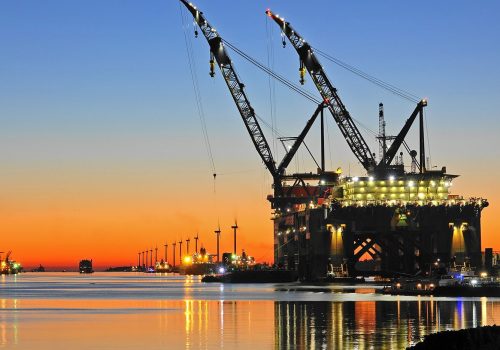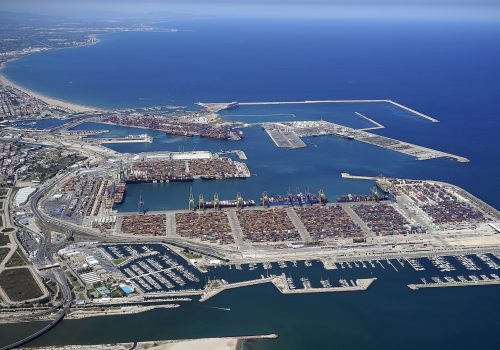Please join the Atlantic Council’s Global Energy Center and bp on Wednesday, March 22, from 9:00AM – 10:15AM ET, for the launch of the new report: “A Model for Decarbonizing Cities”, featuring case studies on Rotterdam, Netherlands and Valencia, Spain and a discussion on decarbonization efforts in other port cities around the world.
Port cities are central nodes in global supply chains with robust industrial and commercial portfolios, yet these activities can produce significant carbon footprints. Rotterdam and Valencia are port cities recognized as leaders in decarbonization, but they operate in different contexts with distinct political economies. Consequently, they have unique characteristics that shape their efforts to lower their carbon footprints. For example, Valencia has capitalized on the opportunities afforded by the compactness of its five-kilometer radius, and by a port with limited reach into the Spanish hinterland. Rotterdam’s story is more complicated, given that the impact of its port-based economy extends well beyond local, provincial (South Holland), and national boundaries.
At the same time, the cities have overlapping areas of decarbonization strategies. Both Valencia and Rotterdam are attempting to limit the use of personal cars; incentivize public transportation; improve energy efficiency in buildings; and use key technologies, such as clean hydrogen or ammonia, to decarbonize key industrial sectors. In addition to common solutions, the cities have similar decarbonization obstacles. Both cities face challenges related to measuring emissions, assigning responsibility for them, and incentivizing market actors to deploy capital for decarbonization. While each situation is unique, lessons learned from Valencia and Rotterdam are likely to have great relevance for other port cities looking to reduce emissions.
This discussion will review policies and initiatives that have been instrumental to their success and identify key challenges and opportunities for each city. The discussion will attempt to draw out potential lessons for other cities seeking to pursue an effective decarbonization pathway while achieving societal buy-in and maintaining key economic activities. What policies are necessary for cities, especially port cities, to unlock opportunities and meet decarbonization goals?
Keynote remarks by
Andres Guevara
President, Spain
BP
Panel I: Valencia and Rotterdam case studies
Raúl Cascajo
Head of Environmental Policies
Port Authority of Valencia
Mark Dijk
Manager External Affairs
Port of Rotterdam
Débora Domingo Calabuig
Vice-Rector for Sustainable Development of Campus
Universitat Politecnica de Valencia
Gillis Oudeman
Director, Scientific Solutions and External Partnerships
City of Rotterdam
Panel II: Decarbonization strategies in port cities around the world
Sophia Cunningham
Senior Director, Houston Energy Transition Initiative
Greater Houston Partnership
Bob Sanguinetti
CEO
Port of Aberdeen
Johan Byskov Svendsen
Program Manager, Zero Carbon Shipping
Maersk McKinney Moeller Center
Moderated by
RELATED CONTENT

The Global Energy Center develops and promotes pragmatic and nonpartisan policy solutions designed to advance global energy security, enhance economic opportunity, and accelerate pathways to net-zero emissions.


